From book bans at public libraries to restrictions on drag story hours, 2023 saw no shortage of efforts to control what people read—how they and their children choose to learn, grow, and expand their imaginations.
Here at Inquest, books remain central to our work and our mission. And in keeping with the times, we joined the conversation around banning them. But we didn’t stop there: We published dozens of essays, excerpts, and reviews examining how the United States is unrivaled in imprisoning our own—and how we might end that crisis.
In partnership with PEN America, we tackled head on how book bans in carceral settings are widespread, predating the current moment by many years. As that series showed, the harms of these bans, which can mean life or death for people in prison, aren’t justified. They must be ended.
In other book-related essays, our readers learned of how a prison book program in Boston is changing hearts and minds—of people in prison, yes, but also of the volunteers who step up to send thousands of books every year to incarcerated readers across the country.
And a novelist who wrote about a world without mass incarceration urged those closest to the problem to imagine their own worlds—in hopes of moving people and public policy. “What better way to help people empathize with the plight of incarcerated people, and of families left destroyed in the criminal legal system’s wake, than to put them in the heads of characters experiencing these harms?” author B. L. Blanchard pondered.
In that spirit of imagining decarceral futures, below you’ll find a list of books that moved us in the past year. As ever, we hope they move you to action.
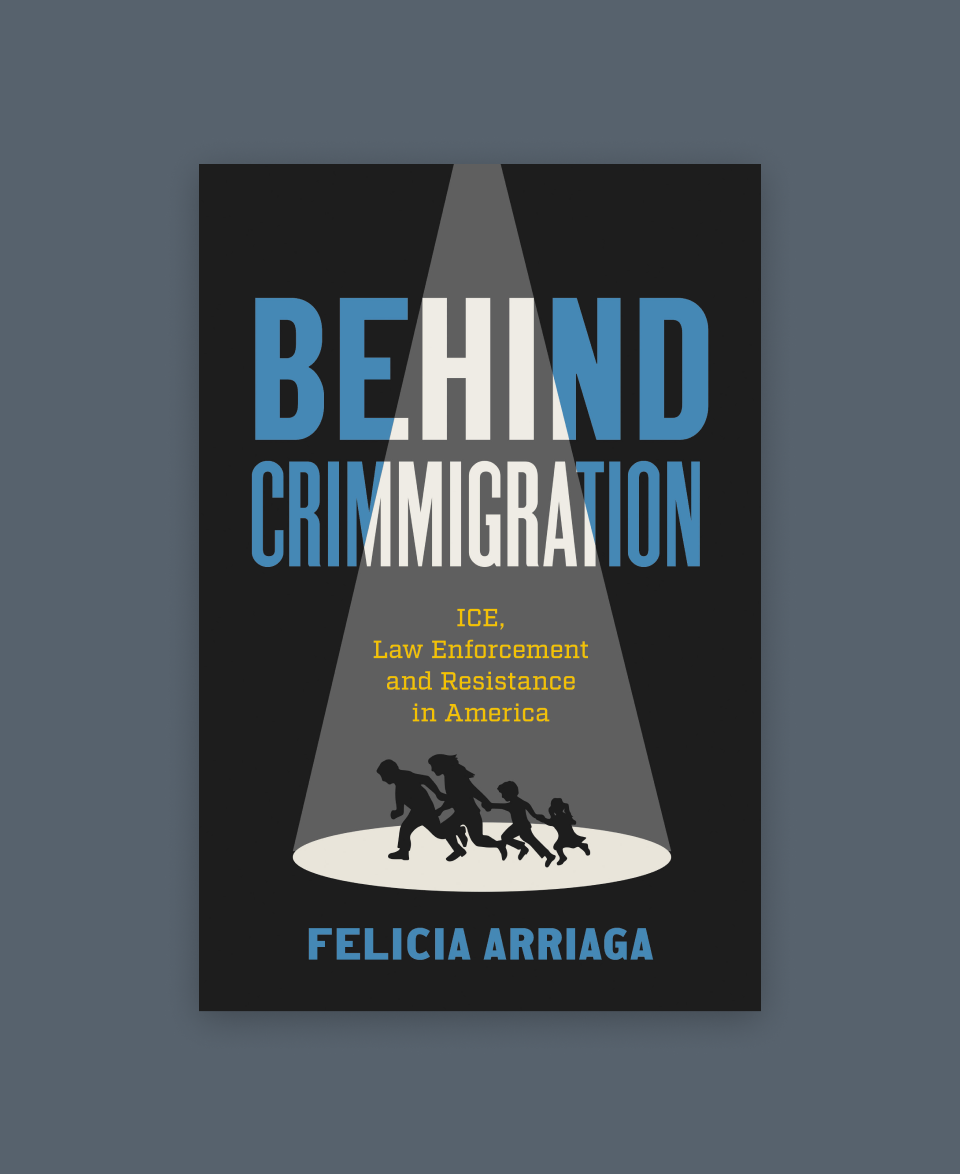
Felicia Arriaga
Behind Crimmigration: ICE, Law Enforcement, and Resistance in America (University of North Carolina Press)
When I first met and interviewed Felicia Arriaga in the fall of 2018, immigrants’ rights activists were on the brink of major wins that would change the script of local organizing nationwide. Soon, they would oust a slate of local sheriffs in North Carolina who were actively collaborating with the Trump administration to crack down on immigration. As a researcher who was also deeply embedded in that movement within North Carolina, Arriaga was well situated to capture both the profound harms of immigration enforcement and the grassroots political work that had brought the state to that moment—and her research only grew in the four years leading up to the publication of Behind Crimmigration, her debut book. Behind Crimmigration explores the racialized effects and human costs of a local law enforcement agency’s decision to collaborate with ICE. Focusing the research on just five North Carolina counties enables Arriaga to expose those effects at a level of detail that’s rarely been attempted on this topic. But what makes this book an essential window into present politics is the backdrop of the extraordinary activism that has transformed North Carolina since 2018 and the ongoing backlash it has generated on the right since, including retaliatory ICE raids, both dynamics that Arriaga has observed from the front rows. [For our coverage, click here.]
—Daniel Nichanian, contributing editor
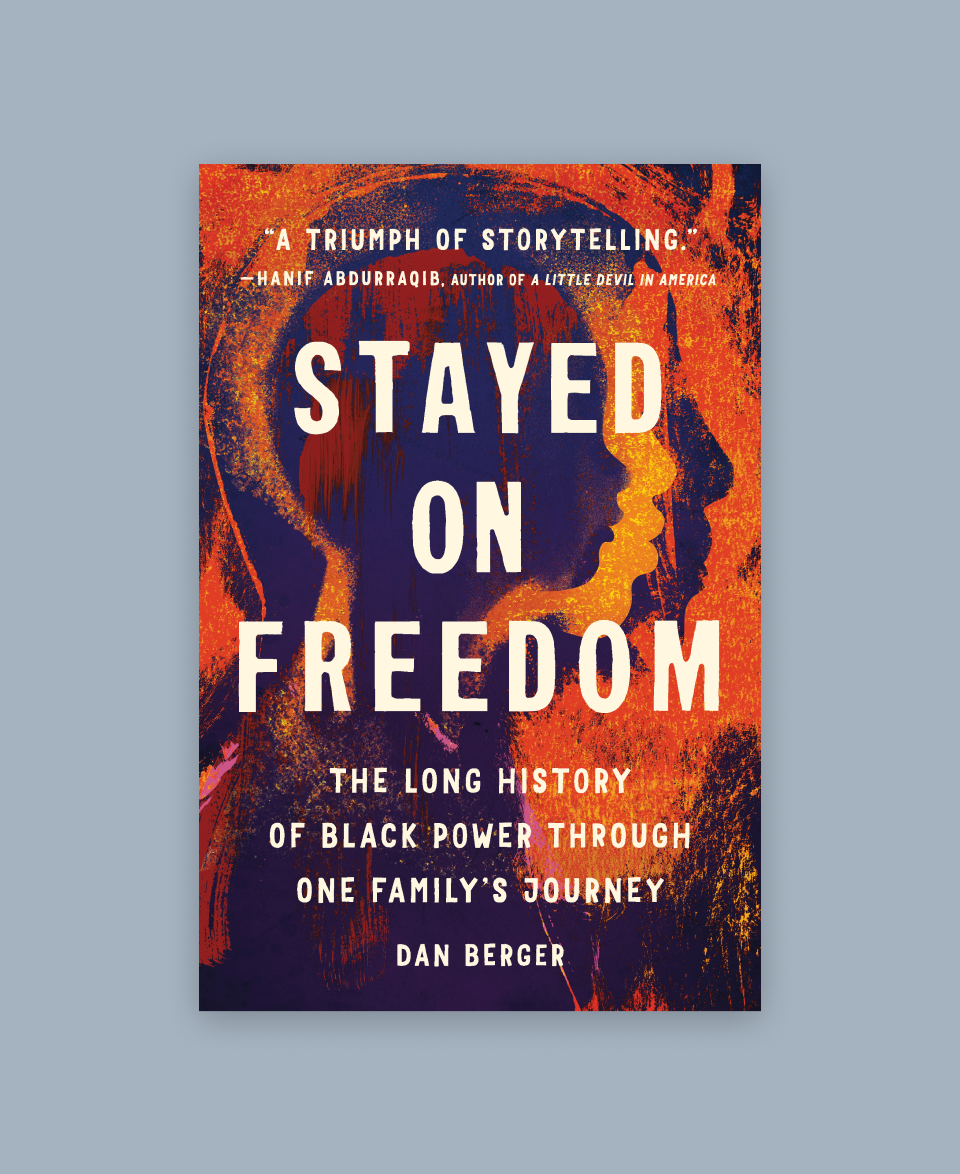
Dan Berger
Stayed on Freedom: The Long History of Black Power Through One Family’s Journey (Basic Books)
Michael, Zoharah, and Aishah Shahidah Simmons won’t go down in history in the way towering figures in the long arc for Black liberation have. Yet in Stayed on Freedom: The Long History of Black Power Through One Family’s Journey, Dan Berger treats them like the historical players they and many unsung organizers working for a freer, more just world truly are. This family portrait—loving and messy, like so many families—evolves through decades of struggle. Their unit isn’t always united, and individual goals and strategies may vary over time. But as Berger reminds the reader time and again, love for each other, and for the broader cause of seeing everybody free, is this family’s constant. Reading about the Simmonses and their activism, at once hyperlocal and global in scope, I couldn’t help but think about how our actions, beginning within our own families and communities, have the power to transcend borders—and the other way around. “World events affect all of us,” writes Michael Simmons in one of many internal memorandums and the wealth of archival materials Berger mines. In this regard, with subtle urgency, Stayed on Freedom also reads like a timely admonition for our times. [For our coverage, click here.]
—Cristian Farias, senior editor
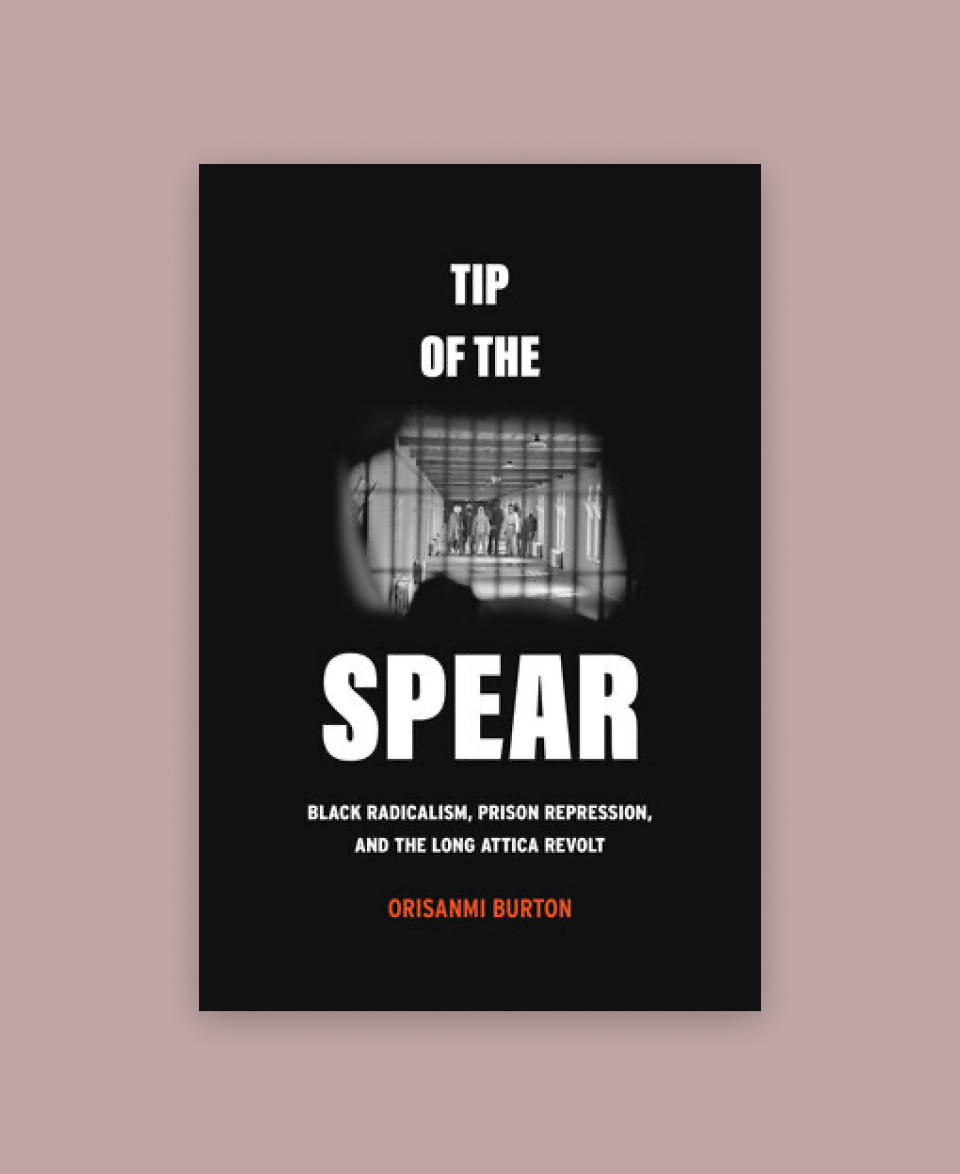
Orisanmi Burton
Tip of the Spear: Black Radicalism, Prison Repression, and the Long Attica Revolt (University of California Press)
Orisanmi Burton’s Tip of the Spear is an extraordinary rethinking of the Attica uprising and the tide of Black militancy that rose up in U.S. prisons during the late 1960s and 1970s. Burton encourages us to think about those four infamous days in September 1971 not merely as an isolated event, nor just another example of extreme, racist brutality enacted by New York state officials. Instead, he weaves Attica into a larger strategy of counterinsurgent repression that emerged alongside incarcerated peoples’ demands for a new world—the conviction, expressed by Victor Martinez, that “we are going to create a paradise out of this hell.” This book not only transformed how I understand Attica, an episode I thought I already knew well. It left me with gnawing questions about what will be required to create change in a United States that remains so deeply committed to white supremacy and practices of domination. Readers hoping for tidy answers to those and other questions will not leave satisfied. But Burton has given us a remarkable account of how prison repression and reform intertwine, one that poses fundamental dilemmas about whether our legal system can ever properly serve movements for social change. It is a book that will unsettle and enrage you. It should also become the account of Attica that every interested person reads. [For our coverage, click here.]
—Daniel Fernandez, consulting editor
More from our decarceral brainstorm
Every week, Inquest aims to bring you insights from people thinking through and working for a world without mass incarceration.
Sign up for our newsletter for the latest.
Newsletter
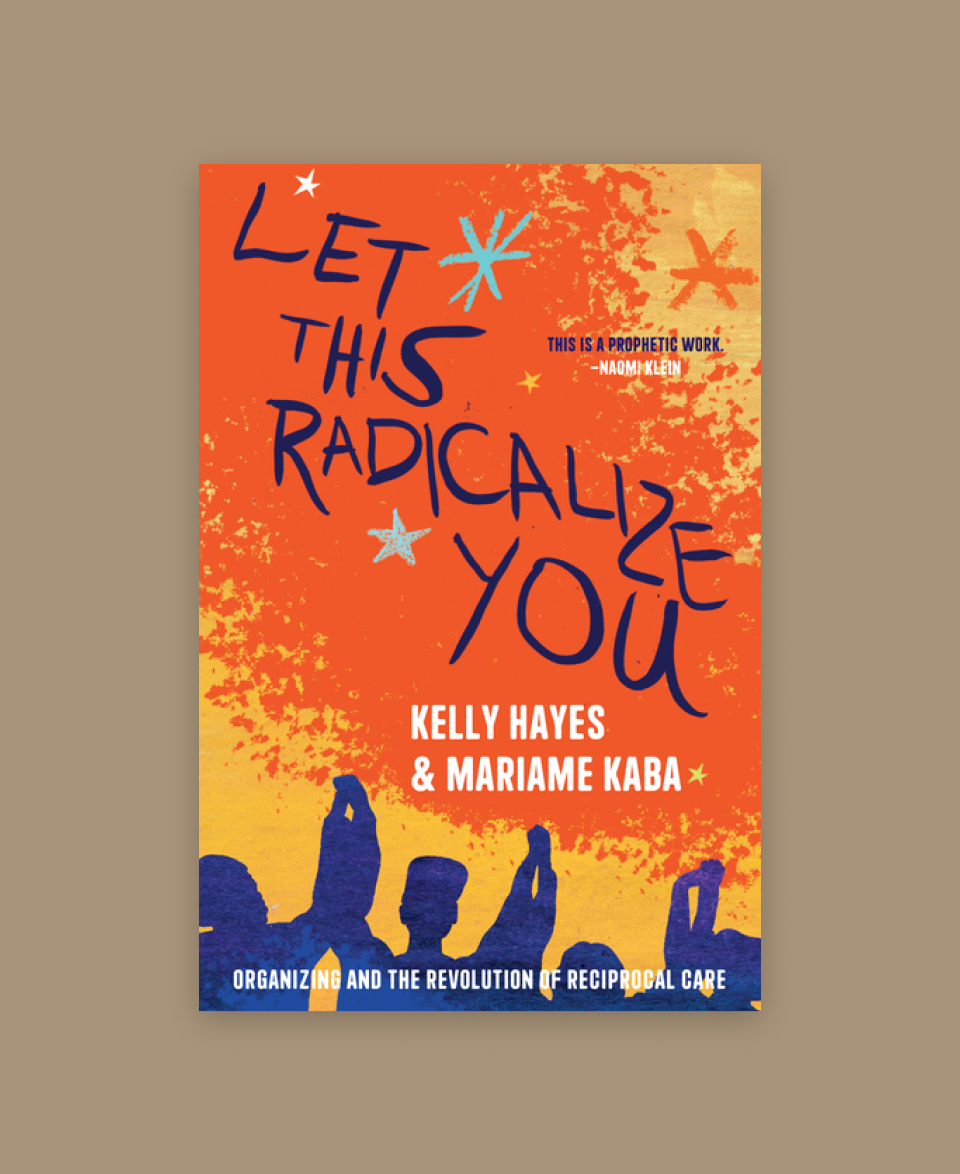
Kelly Hayes & Mariame Kaba
Let This Radicalize You: Organizing and the Revolution of Reciprocal Care (Haymarket)
Kelly Hayes and Mariame Kaba’s book offers something like a complete abolitionist vision of the good life. As mothers of the movement, Hayes and Kaba present a series of compelling recommendations for what it can (they would never say should, I think) look like to move through the world as an abolitionist. It doubles as a set of advice about likely stumbling blocks: Don’t allow fear to make enemies of fellow oppressed people. Allow love of one another to guide you into movement organizing, even if hope can’t quite get you there. Don’t make heroes out of your leaders. Don’t try to think that abolitionist hope places you above grief; rather, make grief useful. Don’t run yourself into the ground for the cause; the cause needs you too much. The book is not actually this aphoristic as a reading experience, but I suspect that many readers will, like me, be left with these koan-like insights that lodge in the mind and continue to inspire long after. More than anything, it is an astonishingly comforting book—not “comfort” in the bourgeois, material sense, but rather in the sense of a balm to the soul: Hayes and Kaba’s book renews hope that change can happen—that we can make it happen. In a time when hope feels in short supply, Let This Radicalize You is thus critical reading for anyone wishing the world were a better place than it is. [For our coverage, click here.]
—Adam McGee, managing editor
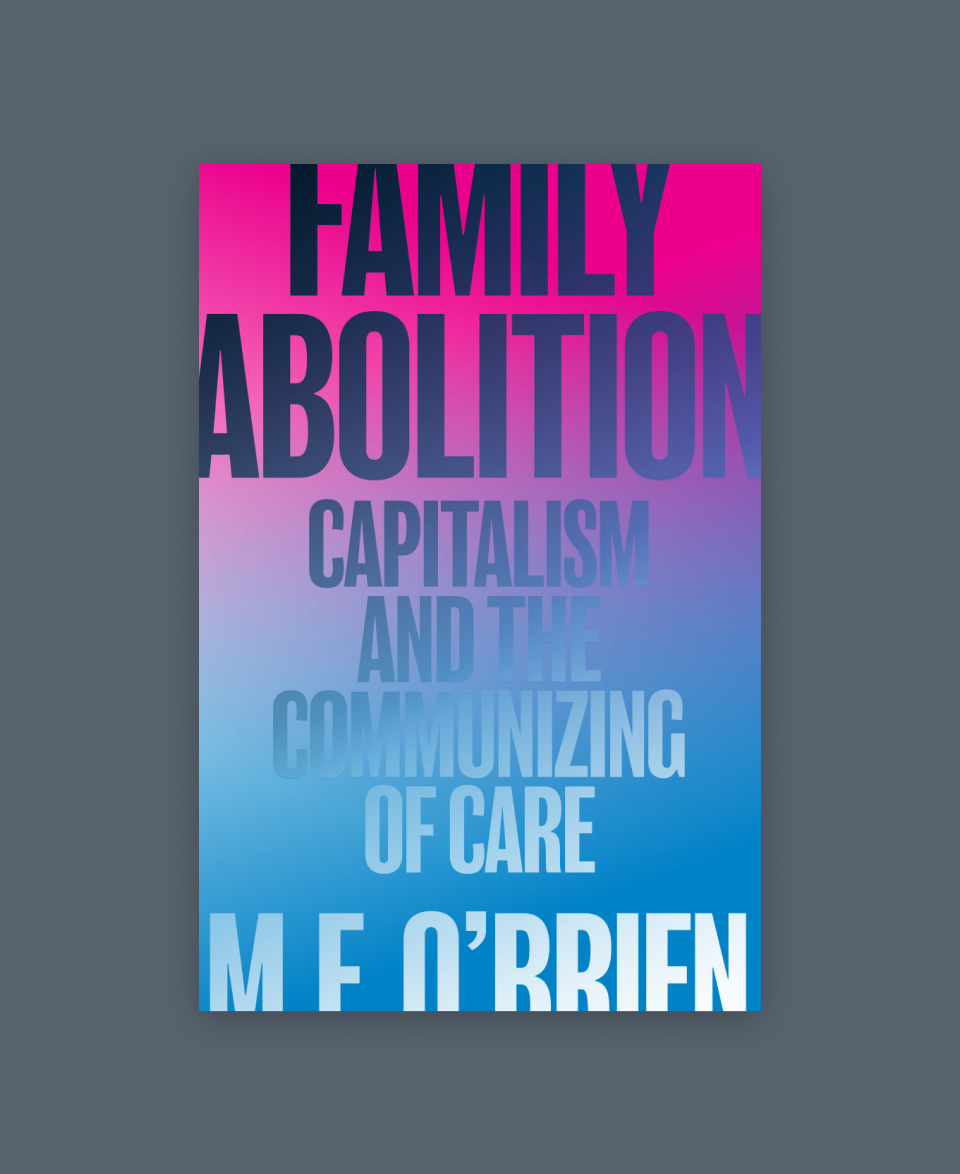
M. E. O’Brien
Family Abolition: Capitalism and the Communizing of Care (Pluto Press)
“The family is a limit to human emancipation,” M. E. O’Brien writes in Family Abolition. For many queer people, that’s a knowledge inscribed on our bones. Often abused by and exiled from our families, we instinctively understand that the “love” of the family can be window dressing for a strict system of controlling and distributing capital. Little wonder, then, that many queer people spend our lives painstakingly assembling chosen family and other networks of mutual aid with people we consider kin in all the ways that matter. We do so in tacit acknowledgement that we need something like the love and material support of family, but that there is a plurality of options for how to create that beyond heterosexual, cisgender procreation. In other words: the family is dead, long live the family. O’Brien likewise argues that the real problem with family is the monopoly it possesses over the fulfillment of material needs—and how this too frequently traps people in immiserating circumstances. O’Brien proposes a clear solution: bust up the monopoly. By communizing care—offering people all the support they need without relying upon the heterosexual nuclear family to distribute it—our society could guarantee that everyone receives the care they need, thus liberating people to arrange their affective lives into whatever shape best suits them. It’s a beautiful vision, and a crucial step in ending the state’s monopoly on all kinds of violence, be it carceral or emotional. [For our coverage, click here.]
—Adam McGee, managing editor
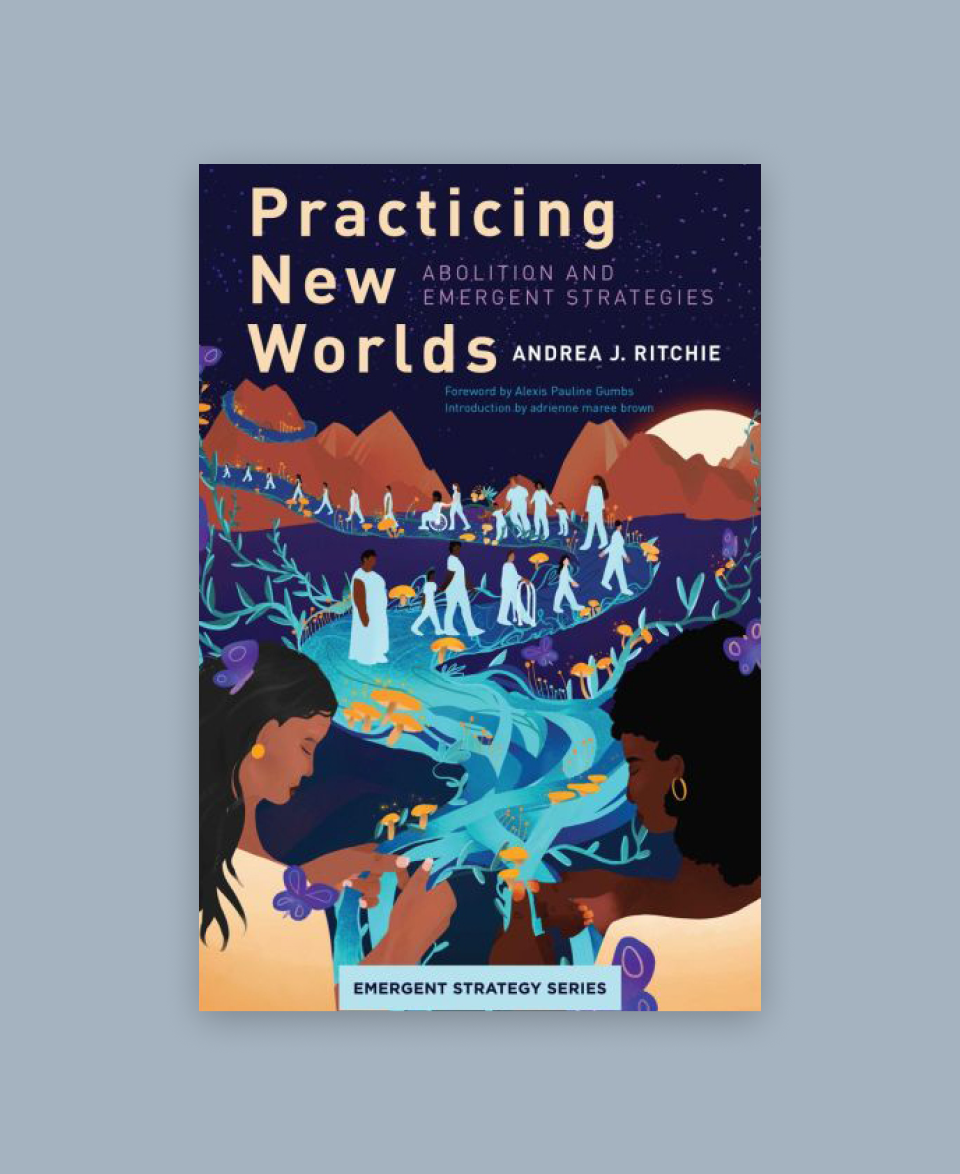
Andrea J. Ritchie
Practicing New Worlds: Abolition and Emergent Strategies (AK Press)
In Practicing New Worlds, Andrea J. Ritchie reminds us that achieving a liberated future starts with engaging in justice-oriented modes of being in the present. Drawing from the principles outlined in adrienne maree brown’s Emergent Strategy: Shaping Change, Changing Worlds, Ritchie explores the possibilities of change-making beyond law and policy; specifically, the potential to achieve abolition through a multimodal approach to organizing. The book invites readers from across the spectrum—those who have long fought for abolition, those new to the idea, and everyone in between—to participate in envisioning a better world. It is not simply a theoretical text, but is rooted in the lessons of modern abolitionist movements and the words of those who organize them. Accessible yet challenging, grounded yet visionary, Practicing New Worlds takes our wildest abolitionist dreams and suggests how we might make them reality. [For our coverage, click here.]
—Daven McQueen, assistant editor
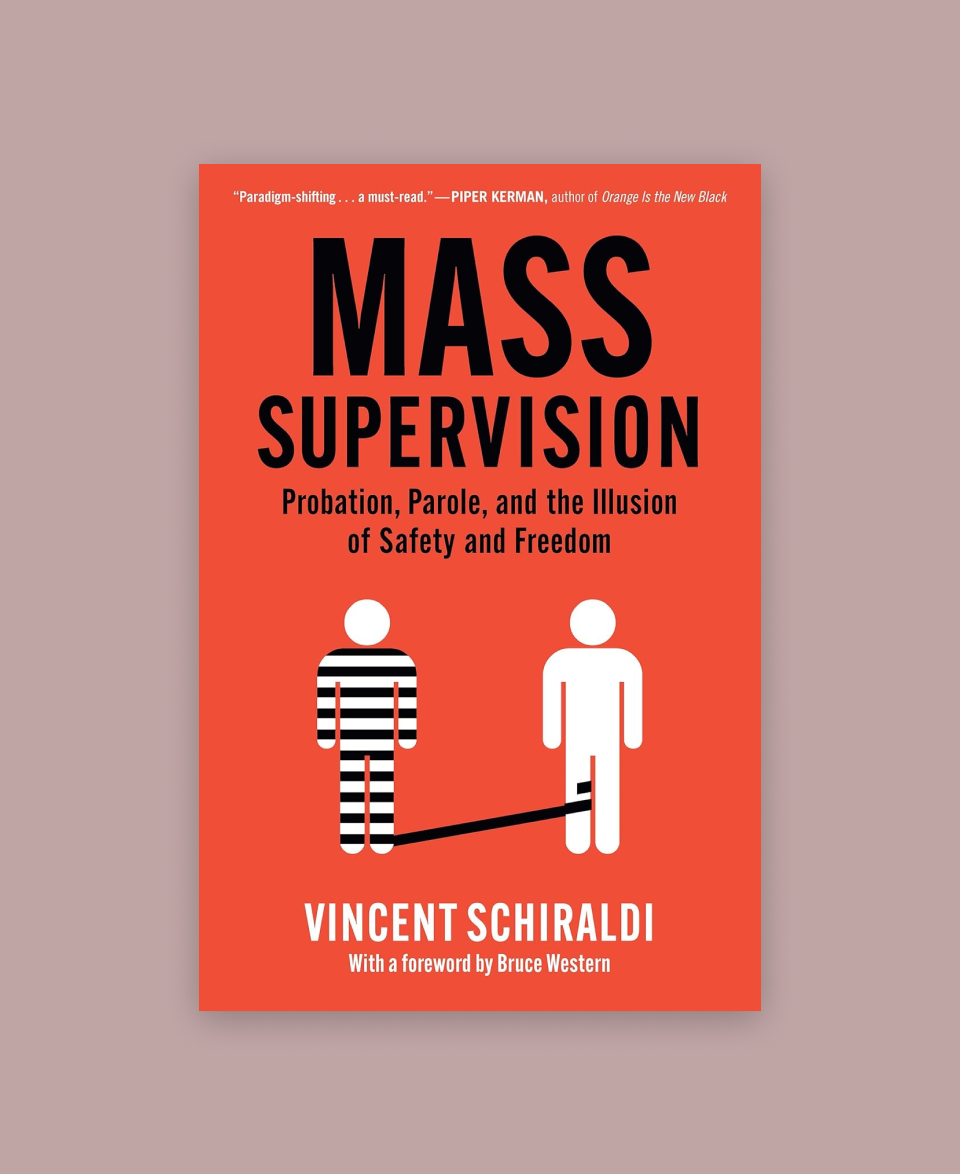
Vincent Schiraldi
Mass Supervision: Probation, Parole, and the Illusion of Safety and Freedom (The New Press)
I was about one year into representing children prosecuted in Washington, D.C.’s juvenile court when Vincent Schiraldi, a heralded reformer, was tapped to lead D.C.’s new juvenile justice agency. I had spent the past year making regular trips to the soul-crushing children’s jail to visit the kids I represented. I was skeptical, curious what kinds of reforms could “fix” the compiling traumas I witnessed daily. I was no less skeptical when reading Schiraldi’s recent book, Mass Supervision. But: agree or disagree, he takes on a part of our carceral system that so many don’t; he does so with candor about what it does and does not do, and to whom; and he puts forward real policy proposals, which can also be rare. Critiques are common and often easy to agree with. Proposals are neither. And people across the spectrum can, will, and perhaps should take issue with many of the specifics of Schiraldi’s proposal for “incremental abolition.” To me, that’s where much of the book’s value lies. It gives all of us something to agree or disagree with. Some people will have new conversations; some will have new angles in existing conversations; some will take action. All of them will revolve around the concrete notion that “community supervision” is hurting real people every day and needs to be taken on in its own right. For all of these reasons, the book is an important intervention, no matter which direction one leans between “incremental” and “abolition.” [For our coverage, click here.]
—Premal Dharia, coeditor-in-chief
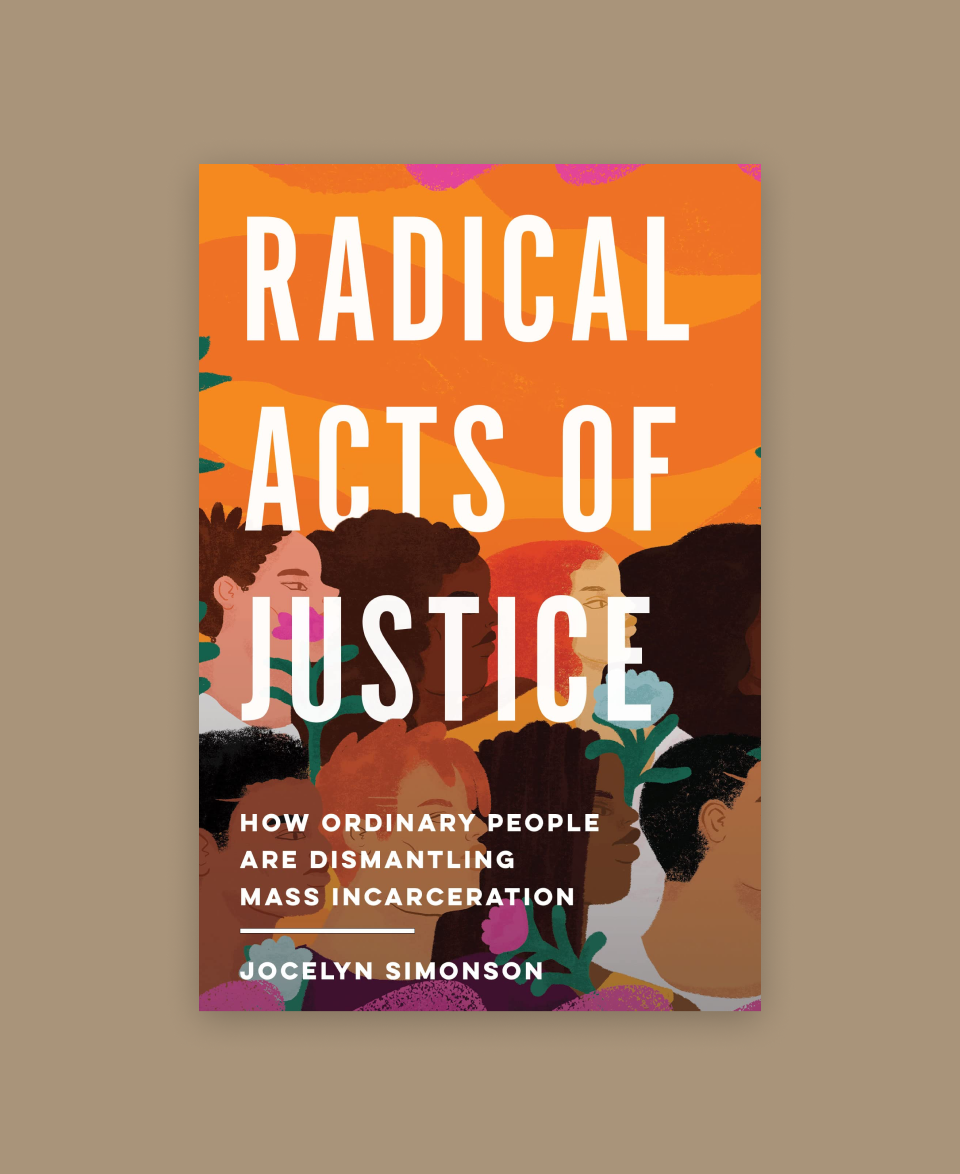
Jocelyn Simonson
Radical Acts of Justice: How Ordinary People Are Dismantling Mass Incarceration (The New Press)
The word radical is both claimed by and wielded against people working to build anticarceral futures. Perhaps ironically, those who wear the word as a badge of honor and those who attempt to wield it as a weapon sometimes treat it as having the same basic meaning: extreme, or far outside the mainstream. For those working to build anticarceral practices, radical ideas and interventions are celebrated as such in part to distinguish them from more commonplace reforms that can bolster, rather than dismantle, the status quo. Meanwhile, defenders of the carceral state routinely label anticarceralists and reformers alike as “radicals” in hopes of painting anticarceral values, ideas, and practices as far removed from—and dangerous to—the community’s supposedly shared values and desires. But as Jocelyn Simonson’s book, Radical Acts of Justice, reminds and demonstrates, there is another important way to understand radical acts and ideas. Not horizontally, as in left–right or mainstream–periphery. But vertically. As in “close to the ground,” or, to borrow from Angela Y. Davis, “at the root.” It is at this level, the ground level, that Simonson situates her compelling and important study of anticarceral organizing at this critical moment in history. From bail funds, to court watching, to participatory defense and people’s budgets, she tells the story of “democratic action at a site of state domination” within local communities, and shows how community members on the ground, near the roots, are working together to “push back.” In this way, Simonson offers an idea subtly radical in its own right—an invitation to reimagine the word “radical” itself. Not as a departure from the mainstream or ordinary way of doing things, but a return to it. A return to a future in which so-called “ordinary” people do fundamentally ordinary, radical things: they care about each other, they show up for each other, they believe their communities can be safe, they believe the forces hurting their communities can be overcome, and they take actions consistent with those beliefs—in hopes of building a better community, together. [For our coverage, click here.]
—Andrew Manuel Crespo, coeditor-in-chief

Celeste Winston
How to Lose the Hounds: Maroon Geographies and a World Beyond Policing (Duke University Press)
In How to Lose the Hounds, Celeste Winston explores marronage not just as a practice of Black agency and resistance, but as a technology that holds the blueprint to police abolition. Blending geography, history, and storytelling, this book pushes readers to envision a justice- and care-oriented model of community already seen in many Black neighborhoods, including Montgomery County, where the narrative is centered. A descendant of maroons myself, I was struck by the way Winston takes a folklore and mode of living so often relegated to the past and applies it to our modern crises of over-policing and mass incarceration. A book both imaginative and grounded in material reality, How to Lose the Hounds offers readers a glimpse of a more just future and the hope to move toward it. [For our coverage, click here.]
—Daven McQueen, assistant editor
Image: Robert Anasch/Unsplash/Inquest
